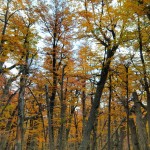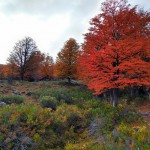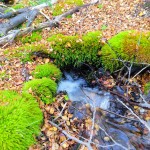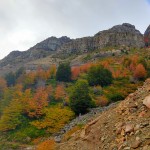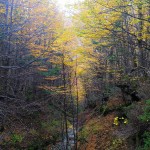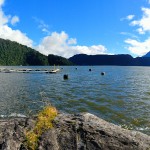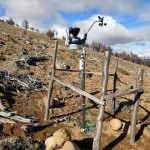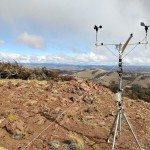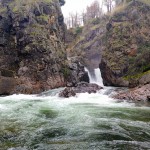Michael Rush

Hydrologic Modeling in the Chilean Patagonia
-
Project Proposal
I propose to study hydrologic and biogeochemical change in mountain environments of the Patagonia at the Centro de Investigación en Ecosistemas de la Patagonia (CIEP) in Coyhaique, Chile. My computational skills will provide insights into the underlying physical and chemical processes and help predict how these landscapes will evolve over time.
Communities throughout the world rely on alpine watersheds for their water supply. Although there is strong evidence for global climate change, we do not yet understand how local water resources will be affected by shifting regional climate patterns. Alpine ecosystems are especially vulnerable and impoverished areas are often disproportionately exposed to environmental contamination and resource scarcity. Therefore, it is urgent that we learn how climate change will affect water quantity and quality to allow such communities time to adapt and prepare.
The goal of the project is to apply hydrologic and biogeochemical models to mountain watersheds within the Chilean Patagonia to predict how climate change will affect local water yield and stream quality over the next century. Moreover, once my project is completed I I will be able to compare and contrast sites in the Chilean Patagonia with my previous research on the Colorado Rockies which will produce deep insights into the fundamental physical processes that drive mountain watersheds, the regional consequences of global climate change, and the effects of nitrogen deposition on alpine ecosystems.
Final Report
With Fulbright I had the experience of selecting my own field sites, installing research equipment, and developing my own ideas in collaboration with Chilean researchers. I learned that I value scientific research that directly relates to relevant local environmental issues and conservation efforts. Some of the most valuable experiences I had were when discussing climate and the environment with Patagonian farmers.
Throughout the course of my project, I instrumented the slopes of sites with meteorological and soil instrumentation, and then used the data to drive simple hydrologic models to predict how long-term changes in precipitation, as well as interannual climate variability may affect streamflow. The modeling results highlight the long-term risks associated with relying on a high-elevation, inland watershed as a municipal water supply in the growing region of Aysén, Chile. Although Patagonia is generally a very humid place, both interannual climate variations and long-term changes pose a threat to winter and spring flows, especially in high-elevation, inland watersheds.
During my time in Chile, I presented at a formal academic seminar called Aguas y Cuencas. I also provided scientific information to the community at a local festival. In addition, I had the opportunity to lead a Python/data analysis workshop at the Universidad de Aysén. I presented the information collected at a formal academic conference where I discussed the future of water management in Patagonia.
-
Proposal:


